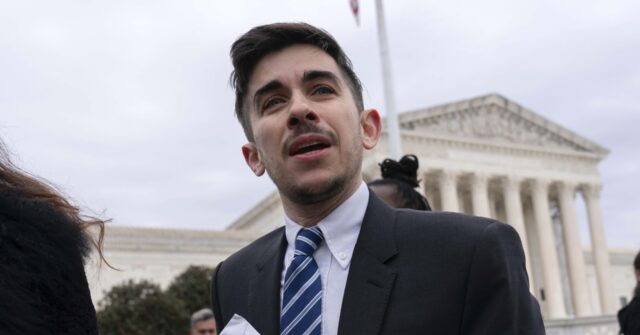On a historic day, Chase Strangio, a transgender attorney with the ACLU, became the first openly transgender lawyer to present a case before the Supreme Court of the United States. Strangio, who identifies as a transgender man and exhibits masculine characteristics such as facial hair, was addressed using male pronouns during the proceedings, indicating a recognition of his gender identity within the courtroom environment. His pivotal role in the case brings attention to the ongoing legal battles surrounding transgender rights and healthcare, particularly for minors experiencing gender dysphoria.
The case at hand, United States v. Skrmetti, addresses a Tennessee law that prohibits the use of puberty blockers for minors diagnosed with gender dysphoria. The Sixth Circuit Court of Appeals had upheld this law, prompting the Biden-Harris administration to mount an appeal. Represented by Solicitor General Elizabeth Prelogar, the administration argues that the Tennessee law constitutes discrimination based on sex and should be reviewed under heightened scrutiny. This highlights the administration’s position that legislation imposing restrictions on gender-affirming treatments lacks a valid justification and disproportionately harms transgender youth.
Strangio’s arguments before the justices mirrored those of the federal government, emphasizing that, unlike the administration’s stance that the law should be scrutinized, the ACLU maintains that the law itself is fundamentally invalid. This assertion underlines the ACLU’s commitment to broader protections for transgender individuals under the Constitution, asserting their rights in a manner that is equal to those of all other Americans. Following the oral arguments, Strangio expressed pride in advocating for the constitutional protections owed to transgender people, further spotlighting the significance of this case in the ongoing struggle for equality and recognition.
Opponents of the Tennessee law defend it by asserting that it protects children from the potential irreversible consequences of medical treatments like puberty blockers, which they argue could lead to infertility and other long-term health issues. This contention emphasizes a deeply rooted conflict between perspectives on medical care for transgender youth, where concerns for health risks are weighed against the rights of these individuals to access care that affirms their gender identity. This case, thus, stands at the intersection of legal, medical, and ethical debates that are increasingly prevalent in national discourse.
As the Supreme Court heard the case, indications from the conservative majority suggested an inclination to uphold the Tennessee law, reflecting a potential endorsement of legislation that restricts access to gender-affirming medical care for minors. The outcome of United States v. Skrmetti could set a significant precedent for similar laws across the country, defining the legal landscape regarding transgender rights and healthcare access in the years to come. The Court’s decision will likely reflect the ongoing tensions surrounding gender identity and the role of lawmakers in regulating medical treatments for transgender individuals.
The case signifies a critical moment not only for transgender rights but also for the broader implications it may have on civil rights in the United States. With Strangio’s historic role in this landmark case, the attention drawn to the rights of transgender individuals reinforces the necessity for ongoing engagement in dialogues about discrimination and the fundamental protections afforded by the Constitution. As the nation awaits the Court’s ruling, the case serves as a reminder of the continuing fight for equality, dignity, and the protection of rights for all individuals, particularly those in marginalized communities.

